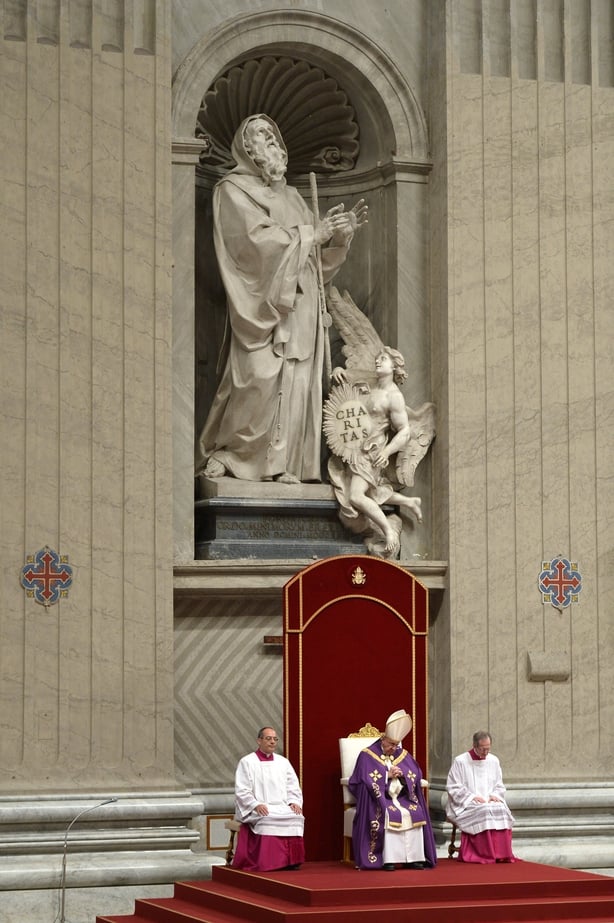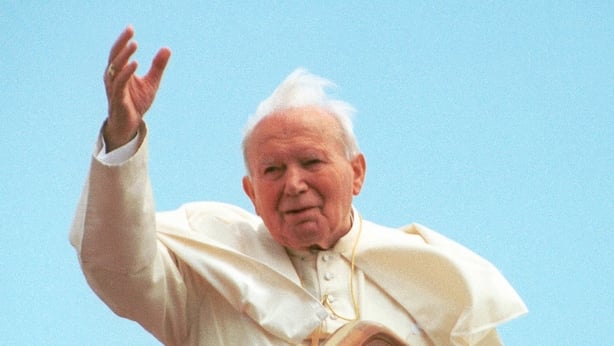Pope Francis believes his pontificate will be short and that he would be ready to resign like his predecessor rather than ruling for life.
In the long interview with Mexican broadcaster Televisa, released on the second anniversary of his surprise election, Pope Francis also said he "did not mind" being pope but would like to be able to go out in Rome unrecognised for a pizza.
"I have the feeling that my pontificate will be brief – four or five years, even two or three. Two have already passed. It's a somewhat strange sensation," he said, according to a Vatican translation from Spanish.
"I feel that the Lord has placed me here for a short time," the Argentine-born pontiff said.
Pope Francis, apparently in good health at 78, said: "I share the idea of what Benedict did."
In 2013, former Pope Benedict became the first head of the Catholic Church in 600 years to resign instead of ruling until he died.
"In general, I think what Benedict so courageously did was to open the door to the popes emeritus. Benedict should not be considered an exception, but an institution," Pope Francis said.
However, he said he did not like the idea of an automatic retirement age for popes, such as at age 80.
In the 17-page interview, Francis also said the fact he is the first pope from Latin America compelled him to speak out on behalf of migrants and the poor because his ancestors had to move from Italy to Argentina to find work.
 "People are being discarded and forced to seek employment elsewhere," said Pope Francis, whose first trip after his election was to the Italian island of Lampedusa to pay tribute to thousands of migrants who have died trying to reach Europe.
"People are being discarded and forced to seek employment elsewhere," said Pope Francis, whose first trip after his election was to the Italian island of Lampedusa to pay tribute to thousands of migrants who have died trying to reach Europe.
The Pope, who in the past has called for more regulation of markets, denounced "the injustice of wealth", saying it was a mortal sin to give someone an unjust salary or for the rich to take advantage of the poor.
On the lighter side, he said "I do not mind", when asked if he liked being pope.
"The only thing I would like is to go out one day, without being recognised, and go to a pizzeria for a pizza," he said, adding that he missed his days as a bishop in Buenos Aires, when he could move about the city freely.
"In Buenos Aires, I was a rover," he said.
Extraordinary holy year to mark Vatican II anniversary
Pope Francis also declared an extraordinary jubilee year to celebrate the 50th anniversary of Vatican II and said the Church was bound to continue its reforming work.
The jubilee - or holy year - will begin on December 8, the date the Vatican II council closed in 1965, Pope Francis said in St Peter's Basilica.
Making the surprise announcement, Pope Francis said the holy year will focus on the topic of mercy, one of the most important themes of his papacy.
It will end on 20 November 2016. This will be only the 29th Holy Year in the Church since the tradition started more than 700 years ago.
The Pope described the date as being "of great significance, for it impels the Church to continue the work begun at Vatican II."
An extraordinary holy year is one of the Church’s most important events.
During the last holy year in 2000, millions of pilgrims came to Rome to take part in religious festivities throughout the year.
Holy years normally take place every 25 years unless a pope decrees an extraordinary one to bring attention to a particular topic or need. The next one had been scheduled for 2025.
Pope Francis, who says he wants his Church of 1.2 billion members to be more merciful and less rigid towards sinners, said the jubilee would be an occasion for all members - and the Church itself - to rediscover the need to be forgiving and generous.
"The Church is the home that accepts everyone and refuses no one ... the greater the sin, the greater the love that the Church should show towards those who convert," he said.

During a holy year, one of the entrances to St Peter's Basilica, which is known as the Holy Door and normally bricked up, is opened so pilgrims can pass through it. The Holy Doors of Rome's other basilicas are also opened.
According to the Vatican website, a holy year should be a time of reconciliation with adversaries and an occasion to promote solidarity, hope and justice in the world.
The Vatican said the official proclamation of the holy year, known as a papal bull, will be published next month.
The last extraordinary holy year was called in 1983 by Pope John Paul II to mark the 1,950 years after the death of Jesus.
Read Joe Little's analysis

